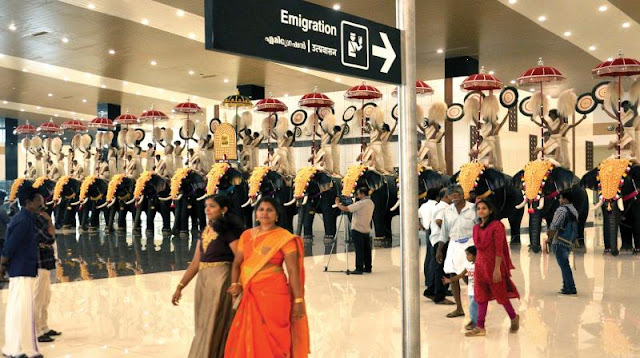Al Jazeera, the news channel based in Doha is unique among the news channels in the world( with the exception of the venerable BBC, that many of us grew up with) in that they produce documentaries on subjects not considered commercially worthy by the TV networks of the Capitalist countries. I also noticed this on a visit to Sweden, while a student, that the more socialist your government is, far more care is put into developing the minds of the populations rather than with the singular (I like the French word, singulier as it conveys more of the strangeness and selfishness of this behaviour) aim of making money. I like to say that while Cuba, a socialist country, is one of the poorest in the American hemispheres in the economic sense, it is the most advanced in the emotional sense, paying a lot of attention to the wholistic development of the individual, not educating the children with the sole purpose of making money but also to be good, just citizens. This is also reflected in the Cuban Humanitarian mission (Medical) where more than 75 000 professionals serve in humanitarian outposts throughout the developing world.
Al Jazeera is based in Doha (I have missed my periodic visits to this town in the desert during this social separation from the world due to Sars-C0-V pandemic), also home to my favourite airline, Qatar Airways. It is partially owned by the Government but I consider Emir Al-Thani to be a moderate (slightly anti-Israeli to appease the Arab masses of poorer countries) but progressive when it comes to his people. I am one of his admirers.
This morning while perusing through the Al Jazeera menus, I came across the headline.
It made an interesting read, I enjoyed it, felt one with the struggle of the local women and the meaning of this struggle, and those of separation of their husbands to distant lands, the so called Climate Refugees, and how women by themselves have made this region on the northeastern part of Senegal on the border with Mauritania blossom once again, to such a degree that some of the Senegalese who work mainly in the menial jobs in France or Belgium or Germany are beginning to trickle back home.
"A little is enough to gain the freedom of having a choice again." Said a man who had returned from France to be with his wife and family in this remote region, with the threat of the Sahara encroaching upon the land .
Ha, what a wise man, give us tools to let us get a little bit more, solar panels bringing water for irrigation in this case and then flourishing crops.
My mind wanders off
I am waiting for my Uber driver, at the arrivals area of the Cochin International Airport. All drivers seem to be christened Mohammed (a little pun here which I would explain at another time), and if he speaks a little English, I would ask him, what were you doing in the Gulf countries? Or which Gulf State were you working? Many of these young men had gone to the oil rich gulf states and toiled there, in those lands without greenery (with the exception of Salalah in Oman which looks more like Cochin than Arabia) and with the money saved while supporting their parents, building homes and having children, they return to work here. Their answer is universal: Here each day I can go home to my family, eat our own food prepared by my wife and see my children grow up. He had his choice and he made it and what all he needed was that little push, that little gain. When I am travelling in Qatar or Oman (which happens to be my favourite Gulf nation and my favourite Arab nation), I mentally thank owners of businesses and the government and the Sultan Qaboos (whose recent demise was mourned!) on behalf all the Mohammeds who are now taxi drivers or hotel receptionist in Cochin, India. This story is repeated in all the towns and villages of Kerala and in much of India, Sri Lanka, Nepal and Philippines.
Cochin International Airport.
Salalah, Oman
Shukran.
And
ANCIENT WISDOM OF THE FULÅE Lekkun åee e ðowkal mun. Every little tree gives its little bit of shade.







